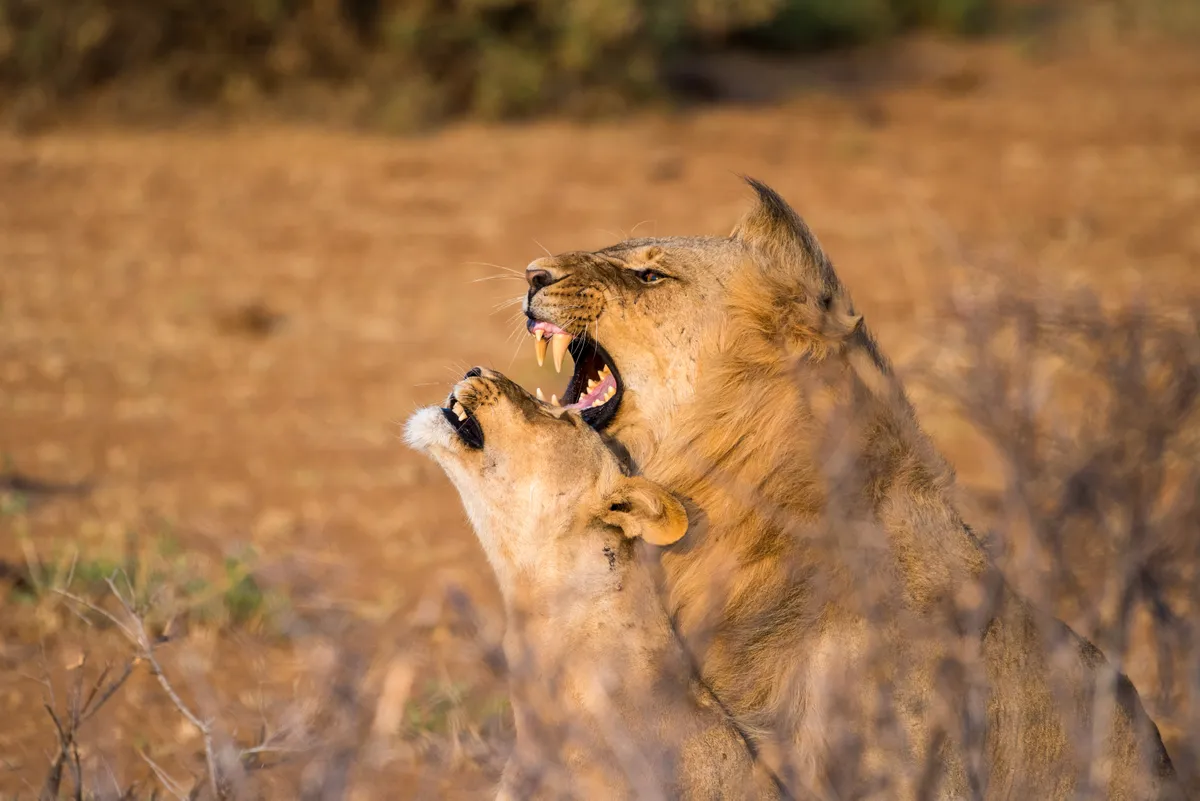I once stole a lion’s girlfriend. I was in the Maasai Mara, Kenya, experimenting with audio playback as a means of deciphering lion communication. This involved blasting the recording of a lion’s roar into another male’s territory and waiting for a response. This rather audacious line of scientific enquiry resulted in three lions – one female and two males – racing over to our Land Rover to investigate.
The males quickly got bored when they failed to find a rival and padded off. The female, however, pinned us to the spot, legs akimbo, for over two hours. She was in oestrus and, in addition to mating with her consorts, she also wanted to mate with me. Apparently, this was nothing special for a lioness: females are known to mate one hundred times with multiple males during their fertile period.

I was surprised to discover the licentious nature of the female lion. At university I was taught that males, with their bountiful supply of cheap sperm, are wired for promiscuity whereas females, with their limited number of costly eggs, must be choosy and chaste. Someone clearly forgot to inform the lioness of this 'universal law'.
The main problem with this neat classification is, it’s wrong. We now understand that females from species as diverse as langurs, lizards and lobsters employ a wanton sexual strategy of multiple mating. Female promiscuity increases the chances of genetic or immune compatibility, which results in healthier offspring.
The lioness has an additional maternal motive for her wanton nature: to protect her vulnerable cubs from murder.
Lions are the only social species of big cat. In Africa, they live in prides of around 4-6 related females, their dependent offspring and a coalition of two males. When fresh males take over a pride, they often kill any unweaned young. This stops them wasting energy raising cubs that aren’t theirs, but more importantly it means they get to father their own sooner.
Nursing females are unavailable for mating, so infanticide forces a lioness into oestrus much faster than waiting for her cubs to wean. Given that a lioness will only give birth once every two years and the average pride tenure for males is also two years, the selective pressure for this brutal behaviour is intense.
Females have evolved several cunning counterstrategies, however. By breeding in groups, nursing mothers seek safety in numbers and will either flee or aggressively fight off alien males.
When fertile, their main weapon is sex. Mating with multiple males, inside and outside the pride, confuses paternity and deters any incoming males from infanticidal behaviour.
This means the lioness I seduced by accident was compelled to have sex with me, not because she fancied the sound of my tinny roar but so I didn’t wind up murdering her babies.